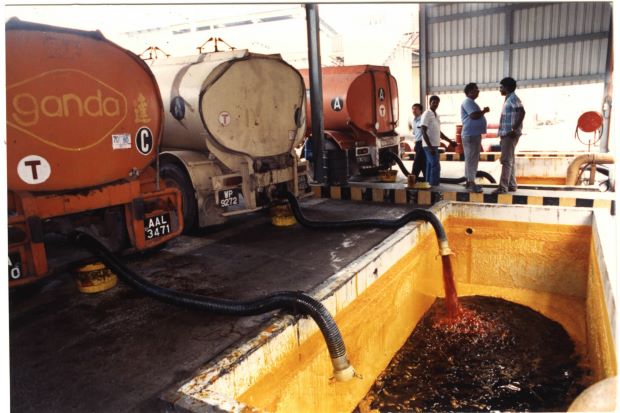Malaysian palm oil price hits one week high on output concerns
KUALA LUMPUR: Malaysian palm oil futures on Thursday rose for a second consecutive session on the back of concerns over output growth, although the market had earlier shown mixed signals due to a stronger ringgit and weaker exports.
A stronger ringgit, palm’s currency of trade, typically weakens the market as it makes palm oil more expensive for holders of foreign currencies. Earlier in the session, the currency rose to its highest in over seven months before weakening 0.2 percent to 4.2650 per dollar.
The benchmark palm oil contract for August delivery on the Bursa Malaysia Derivatives Exchange was up 1.7 percent at 2,498 ringgit ($585.70) a tonne at the close of trade, its biggest daily gain in over two months.
Palm earlier climbed to an intraday high of 2,500 ringgit, its highest level in a week.
Traded volumes stood at 60,608 lots of 25 tonnes.
“We expected the market to be lower this morning amid a strong ringgit and weak exports, but the market seems to be holding,” said a Kuala Lumpur-based trader.
“We believe the market could be anticipating harvest interruptions during Ramadan, which could offset the lower exports.”
Palm oil production is seen falling in June as workers go on leave during the Muslim fasting month of Ramadan and the Eid-Al-Fitr holiday period, leading to a shortage of workers to harvest the oilseed.
Palm oil exports are expected to decline after Ramadan, and as big buyers such as China and India switch to cheaper rival oilseeds such as soyoil and rapeseed oil.
Shipments from Malaysia fell 17.6 percent in the first half of June compared with the corresponding period last month, Intertek Testing Services cargo surveyor data showed.
Data from another surveyor Societe Generale de Surveillance showed exports fell 14.7 percent in the same period.
In related oils, soybean oil on the Chicago Board of Trade was down 0.1 percent, while September soybean oil on the Dalian Commodity Exchange rose 0.2 percent.
September palm olein was up 0.1 percent.
Movements in the soyoil market generally affect palm oil prices as both vegetable oils compete for a share in the global edible oils market. – Reuters
Source: http://www.thestar.com.my/business/business-news/2017/06/16/palm-oil-hits-one-week-high-on-output-concerns/#xiicxowkvh3J5y2l.99


 English
English




